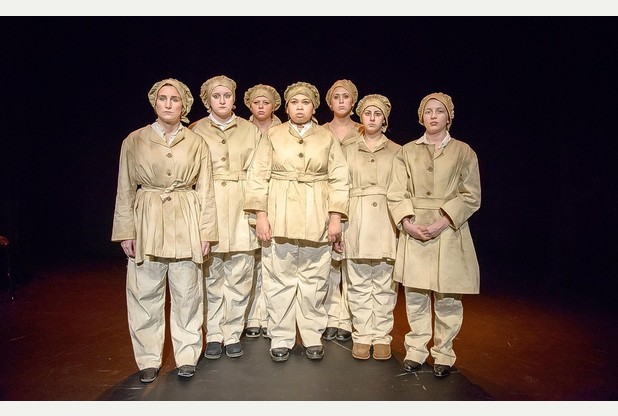The top secret mustard gas factory was ruled mostly by women, where the savage chemical weapon, which killed so many soldiers during the First World War, was manufactured. After researching several records offices, including the National Archives and the British Library, and to mark the centenary of the start of the First World War, a theatre company from Bristol, named Acta, wants to put on a play next month, a story coming from the Avonmouth mustard gas factory, called the Gas Girls.
The team of actors is formed of 20 people between 13 years old and 50 years old and their play can be seen performed at the Actacentre between 19 and 21 March and all around Bristol, beginning from June.
The director of the performance is Neil Beddow, who admitted on being inspired by a recent incident that took place in 2012, in which people suspected mustard gas exposure during some construction work on the factory. “I was totally enthralled by the story and I had no idea of what went on there,” said the director. He said that that was the moment when he realized that most of the people in Bristol know nothing about the factory, about what its purpose was during the war and some are not even aware of the fact that Britain used chemical weapons during the First World War, the Bristol Post reports.
During his lengthy research through deep archives and government meeting, Neil Beddow found out that seven people were killed ta the factory and some other 3000 were injured. However, he believes that many more ended up injured after working in the factory, but they were never recorded. The deadly mustard gas was everywhere on the site of the factory as it seeped into clothes and skin and blistered the lungs of thousands of women working at the mustard gas factory, and it was also in the concrete and wood structures of the site.
“It is an absolutely fascinating and remarkable story and we still know little of the truth,” said director Neil Beddow. The story of the play builds up around the lives of the women who worked in the factory and the atmosphere and patriotism that kept them going. Gas Girls has also a scene in which female workers at the factory and discharged soldiers take part in a football match organised by the war officials to boost their morale.
“We have put a bit of humour into the play to show how people get through times like these,” he said.
//
